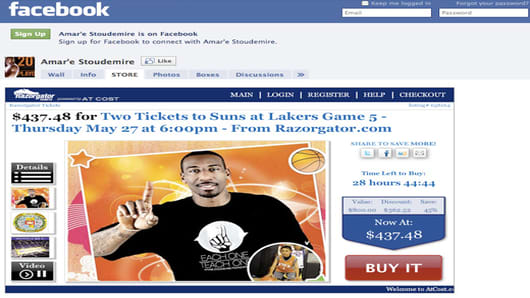In the late 90s, a company called Broadband Sports was signing athletes to Web site deals, with the idea being to empower the athlete to take control of their own brands by disseminating their own news and selling their own merchandise.
But, in the end, athletes weren’t really on board with writing about themselves frequently enough for fans to make their sites worthwhile destinations and the retail space never was fully developed.
Fast forward to today where a combination of factors have led to many athletes controlling the flow of their information more than ever before.
Social media sites like Facebook and Twitter have not only made it easier to put information out — full blogs need not apply anymore. But the athletes themselves are more into technology and understand the importance of connecting with their fan base virtually more than the last generation of athletes ever did.
Now that athletes like Shaq, Dwight Howard and Lance Armstrong have the talking directly to their fans part down, one company is now focusing on using social media platforms to help better develop the business side.
The company is called Lineage Interactive and the goal is to turn the athlete’s social media site into a robust, money-making machine.
“Old age endorsement deals are done,” said Anthony Rodriguez, CEO of the company. “Social media done well will make all athlete-company partnerships real joint ventures, where the athlete helps sell the product more than they ever have before.”
Rodriguez, for example, is working with Phoenix Suns star Amar’e Stoudemire. Through a partnership with RazorGator and a technology platform called AtCost.com, Stoudemire is currently selling playoff tickets on his own Facebook page. The more friends a ticket buyer is willing to link to their transaction with Stoudemire’s page, the cheaper the ticket becomes.



